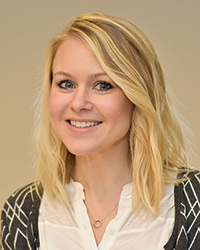
Thornton Tomasetti
Lexington, MA Heather Reed, Ph.D., a senior associate in the NYC office of Thornton Tomasetti has been invited by the National Academy of Engineering (NAE) to attend the 2018 U.S. Frontiers of Engineering Symposium (USFOE) September 5-7 at the MIT Lincoln Laboratory.
Reed holds a Ph.D. and master’s and bachelor’s degrees in civil engineering, all from Cornell University. In 2017, she was named a “Rising Star in Structural Engineering” by Civil + Structural Engineering magazine. She is a member of American Society of Mechanical Engineers Verification & Validation 50 committee and a member of the Acoustical Society of America.
A member of the Weidlinger Applied Science practice, Reed has worked on research projects in such areas as model-based, Bayesian statistical data inversion, uncertainty quantification, and reliability, multi-physics simulations and reduced order modeling techniques. She developed an extreme event, structural risk computational framework that randomly samples potential structural threats and assesses the resulting risk.
Reed joins a long list of Thornton Tomasetti executives to be invited to a NAE Frontiers of Engineering Symposium. Recent FOE alums include managing director Peter DiMaggio, senior principals Elisabeth Malsch and Peggy Van Eepoel, principal Pawel Woelke, and vice president Liling Cao.
Each year, the USFOE brings together 100 innovative engineers under the age of 45 from U.S. companies, universities and government labs to discuss leading-edge research and technical work across a range of engineering fields. The goal of the symposium is to facilitate cross-disciplinary exchange and promote the transfer of new techniques and approaches across fields in order to sustain and build innovation among the next generation of engineering leaders. Participation is by invitation-only following a competitive selection process. The symposium in September will focus on four areas: quantum computers, technology for humanitarian assistance and disaster relief, resilient and reliable infrastructure and theranostics.
 (1).jpg)







.png)